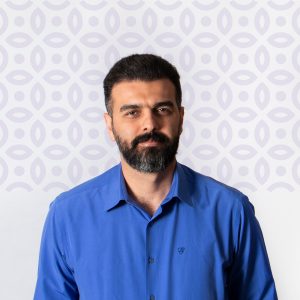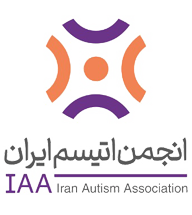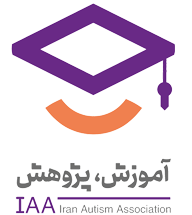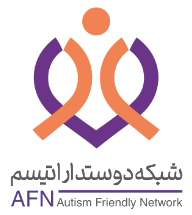- +9821-48085000
- ic@irautism.org
- 9am - 5pm
Autism Academy
The Autism Academy's main activity is to educate and empower the autism society of Iran, including autistic individuals, family members, and specialists. The need for behavioral rehabilitation and education of behavioral skills among autistic individuals is greater than their need for clinical services. Learning skills enables individuals to more easily integrate into society and school, and face fewer problems in their interactions.

Sina Tavakkoli
In addition, it is also important to train the family and caregivers of an autistic person. A knowledgeable and trained parents can be a more effective companion for an autistic person and can pave the way for their independence by consistently teaching behavioral skills.
The target audiences of the Autism Academy are:
- People with autism
- Families
- Instructors
- Caregivers
- Different social and occupational groups
Parenting Course:
Joint Project between Iran Autism Association and World Health Organization
Parenting Course:
This is an international program designed according to WHO standards and based on methods such as ABA, and positive parenting. The parenting course aims to reduce the gap of access to care for children with developmental disorders and delayed development and ultimately tries to achieve the desirable development potential. This course is comprised of nine group sessions and three personal visits at home and is focused on training caretakers on how to use routine activities as opportunities for their child’s learning and development. Parents who participate in this course gradually learn to communicate and interact with their children, identify their challenging behaviors, encourage them to perform various activities in the form of routine home activities, and teach them new skills. During these sessions, caretakers (parents) interact and share their experience. In the final session, they are introduced to problem-solving and self-care activities and learn to maintain their good mood.
In the parenting program, over 10 students have received training through the training of trainers (ToT) method and can hold new courses individually or under a supervisor. So far, the IAA has held 30 parenting courses for over 300 parents. With the support of benefactors and at very low cost, these courses are held online for easy access to people in different cities in Sistan and Baluchistan, Khuzestan, Kerman, Kordestan, Tehran, Bushehr, Yazd, Kermanshah, Isfahan, Mazandaran, Razavi Khorasan, Qazvin, and Alborz provinces as well as Germany, the Netherlands, and Canada.
Joint Project between Iran Autism Association and World Health Organization
On Tuesday, January 10, 2023, the Iran Autism Association (IAA) held a meeting in the IAA headquarters in Tehran to present the “Safety, Telerehab, and Helpline” project completed in partnership with the World Health Organization (WHO). This meeting was attended by Dr. Jafar Hossein (the WHO representative), Dr. Mansour Ranjbar (director of the office of non-communicable diseases and mental health at the office of the Iranian representative of WHO, representatives of IAA’s sponsors, stakeholders (parents of children with autism spectrum disorder (ASD) and members of the IAA scientific council and the board of directors, other stakeholders and international organizations (representatives of UNICEF and UNESCO), and government officials from the Ministry of Health and Medical Education and the Social Security Organization.
The Autism Helpline is the simplest, most accessible, most reliable, and most economical way to seek information or help and consultation on ASD and is available nationwide. The respondents are people holding a relevant bachelor’s degree at a minimum who are trained by autism experts. They are available on the Autism Helpline from 8 AM to 5 PM on weekdays, after which period, the helpline can still be accessed. You may ask your questions and the respondents will call you the next morning as soon as possible to give you the right answer.
“Studies show that people with autism spectrum disorder are more likely to visit hospital emergency rooms and are more susceptible to accidents, abuse, sexual assault, getting lost, and so on. “Safety” is another project focusing on raising awareness on safety for people with ASD. This project also aims to improve the quality of the services provided by emergency workers in Iran to people with ASD. This is specifically intended for better addressing the unique conditions of people with ASD. This project provides educational content, booklets, checklists, and more to raise the awareness of people with ASD and their caretakers on safety concerns, threats, and potential dangers. Social media content, articles, training videos, and other content are presented to IAA members and followers to teach them how to react to emergencies, when and how to seek help from the available emergency lines, and what to expect from them. The IAA has also tried to negotiate with the Iranian emergency phone lines to modify their protocols. The association has also prepared educational content for emergency line staff to train them on ASD and how to meet the needs of people during emergencies.
At the end of this meeting, Dr. Jafar Hossein thanked the IAA for its efforts and stated, “Words cannot describe your efforts. Gathering a number of international organizations, private sector sponsors, the government and the Ministry of Health and Medical Education, experts, and so on to improve social conditions is valuable. What you do here is more than a profession or charity. It is a virtue. Given the support, including financial, human, and technical, there is potential for growing and expanding activities. Moreover, focusing on benefactors and volunteers to continue such activities will not be easy. Rather, the government, healthcare, and other resources should also help this field. The present conditions in Iran are complicated and foreign institutions are not willing to help. Even when foreign governments are willing to cooperate, the Iranian government is reluctant to accept their help. However, I consider the work by this association deserving of international financial assistance. Currently, the association is doing extraordinary work on ASD.”
He added, “We will continue to support your good work here. The Safety, Telerehab, and Helpline projects have been very valuable and well-executed. We would like to help with the Sistan and Baluchistan project as the province is home to Iranians and refugees from Afghanistan and Pakistan due to its shared border. As you mentioned, Sistan and Baluchistan is a deprived province with limited potential for support in health, education, and more. As representatives of the WHO and other departments of the United Nations such as UNICEF and UNESCO, we want to help you on this issue. Our support will not be merely financial, but technical, scientific, etc. The effort to provide socio-psychological care to parents of children with ASD is also essential. We are also willing to take these exemplary experiences beyond Iran, adopting them not only in the Eastern Mediterranean, but European countries, and establish connections with similar associations and organizations so that they may learn from you and you may learn from them. We are excited to establish these connections for you to provide opportunities and potential for further cooperation. We could also help you to pursue advocacy and training on a wider scale. We will also translate them into languages such as Arabic and Urdu. We can hold an international seminar with other experts and organizations to inform them on completed activities. I would like to thank you once again. What you are doing is truly extraordinary and is not merely voluntary or charitable work, but a labor of love and altruism.”
Improving the Health of Children with Autism during the Covid-19 Pandemic
Tele-rehab
Helpline
Improving the Health of Children with Autism during the Covid-19 Pandemic
This project began in 2020 to train children and provide specific rehabilitation and training packages with the support of UNICEF and the Ministry of Health and Medical Education (under the supervision of the office of public, family, and school health). This project generally aims to determine educational priorities for families of children with ASD and scientific and educational cooperation for content creation and educational media. One of the executive milestones of this project was the donation of 500 sensory bags (special training and rehabilitation packages for ASD) to families. These packs are designed for raising awareness, education, and sensory stimulation. Each pack included various sensory and educational items (e.g. balls, cards, toys, books) prepared for different ages and levels of disorder.
This project had other executive milestones such as the preparation of 10 booklets, brochures, pamphlets, and training clips on family education. The educational booklets were prepared in cooperation and with the supervision of the Scientific Council of IAA (Dr. Katayoon Razjooyan and Dr. Mehdi Alizadeh) and Dr. Narya Abolghassemi (Deputy of Children’s Health in the Ministry of Health and Medical Education). These booklets include self-help (Activity of Daily Living (ADL)) with 6 skills, namely showering, going to the bathroom, having food and drinking, combing hair and clipping nails, brushing teeth, and wearing clothes and shoes and four parent-child game booklets (to promote sensory, cognitive, emotional, and social development). The developed content has been sent to certain provincial representative offices and families.
Tele-rehab
The majority of individuals with autism in Iran lack access to rehabilitation services, particularly those residing in deprived areas. In 2022, the Iran Autism Association initiated a telephone rehabilitation project in collaboration with the World Health Organization’s Iran-based office. The aim of this project is to provide individuals with autism in Iran with appropriate rehabilitation and training services.
Helpline
The Department of Family Health at IAA launched a telephone counseling service in 2020 to provide free specialized counseling services for autism to all members of society, regardless of their location. The service is staffed by specialized counselors who provide counseling in various fields, including awareness-raising about the signs and symptoms of autism, behavioral, sensory-cognitive, educational, and occupational problems, as well as problems regarding puberty in people with ASD. They also provide counseling about parenting and parents’ problems with regard to ASD, diagnosis, and referral to specialized centers.
Address
No 8, East Laleh Boulevard, Souht Sattari Highway, Tehran, Iran




